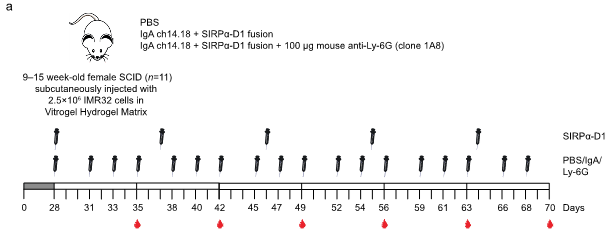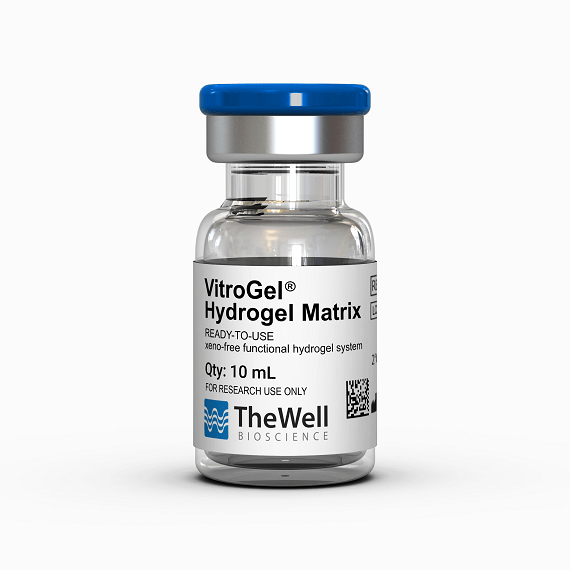Research Highlights
A “Knockout” Antibody for White Blood Cell Studies

Institutions:
University Medical Center Utrecht, The Netherlands
Team:
Olofsen, P.A., Stip, M.C., Marco Jansen, J.H., Chan, C., Nederend, M., Tieland, R.G., Tsioumpekou, M., and Leusen, J.H.W.
Disease Model:
Cancer
Hydrogel:
VitroGel® Hydrogel Matrix
Neutrophils can be incapacitated with a new antibody, injected into mice with the help of VitroGel Hydrogel Matrix, and then assayed for their complex biological function.
Neutrophils make up a large portion of the body’s white blood cell population. They participate in the innate immune system, which protects you from a wide variety of pathogens that are common in the environment. However, neutrophils are rapidly formed from undifferentiated stem cells, and as such, are subject to erroneous mutational events that can lead to tumor formation. Thus, a solid understanding of the genetic factors that control the advent and proliferation of neutrophils is critical to the study of oncology.
To study neutrophil properties in vivo, typically they can be treated with antibodies that suppress their activity. Note that it is common practice for cell biologists to use antibodies to remove a specific cell type to infer its function; this is the “knockout” strategy. But these anti-neutrophil antibodies do not always work; sometimes they last for only a limited period of time. A group of Dutch immunologists set out to examine whether a novel mouse-optimized (i.e., “murinized”) antibody called Ly-6G 1A8 could do the job more persistently and effectively. The authors postulated that this particular antibody could be widely effective in neutrophil knockout studies in mice and lead to a better set of laboratory experiments that more accurately untangle how these cells are involved in cancer.
To study how neutrophils, or their antibody depleted forms, attacked cancer in mice, the authors injected mice that had tumors with various neutrophil preparations. To achieve smooth injection and high cellular uptake, they mixed their cell types with TheWell Bioscience’s VitroGel Hydrogel Matrix, which is a xeno-free cellular support medium that augments cellular injection and xenografting studies. They injected these mice several times a week with neutrophils and tracked the white blood cell composition and the infiltration of neutrophils into tumors. They found that the mouse-Ly-6G antibody did in fact deplete neutrophils more efficiently than the rat version of the antibody and that it can work in a variety of mouse genetic backgrounds. The effect of the antibody can last reliably up to four weeks post injection.
This study once again confirmed the power of the VitroGel Hydrogel Matrix in supporting animal injection studies. The medium creates a biochemical milieu in which cells thrive and behave in a manner that closely emulates a native biological setting. Moreover, the study highlighted the efficacy of the mouse-Ly-6G antibody in a reliable long-term neutrophil depletion model, which in turn can help us more completely understand the complex role that these cells have in proper immunity, in anti-tumor properties, and in aberrant oncogenesis.


